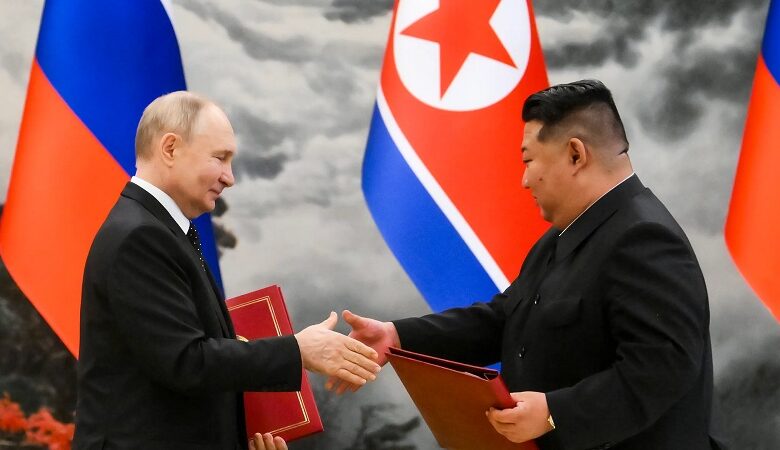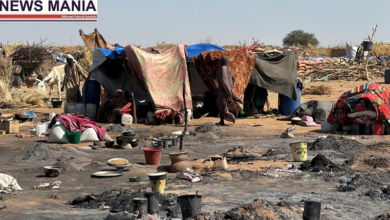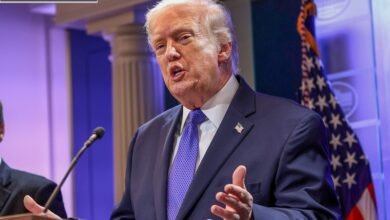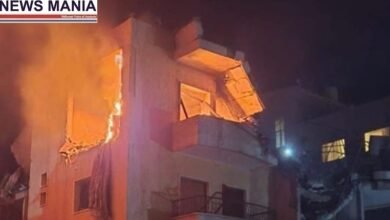Putin and Kim’s Defense Pact Signals New Phase in Russia-North Korea Relations

News Mania Desk/ Agnibeena Ghosh/22nd June 2024
Russian President Vladimir Putin and North Korean leader Kim Jong Un have formalized their growing alliance with a mutual defense pact, pledging to offer military support to each other in the event of an attack. This agreement cements a relationship that has been strengthening since Russia’s invasion of Ukraine, as Moscow and Pyongyang, both under severe international sanctions, find mutual benefit in their cooperation. The U.S. State Department recently estimated that North Korea has provided Russia with over 11,000 containers of munitions since September.
An in-depth analysis of internal Russian trade data has revealed how these munitions, suspected to be from North Korea, have been distributed throughout Russia. The data, obtained by the global security nonprofit C4ADS and shared with The Washington Post, spans from August to January and indicates that more than 74,000 metric tons of explosives were shipped from two ports in Russia’s Far East to 16 sites near Ukraine’s borders. This amount is equivalent to approximately 1.6 million artillery shells used by Russia in its conflict with Ukraine.
C4ADS analysis suggests that the destinations of these shipments point to their nature as munitions, despite official documents labeling them as explosives. Although the origin of the shipments was not specified in the data, further investigation by The Post and C4ADS found evidence of Russian vessels traveling between North Korea and Russia during this period.
Go Myong-hyun, a senior research fellow at Seoul’s Institute for National Security Strategy, stated that this data is the most concrete proof to date of the Russian-North Korean munitions transfers, contradicting denials from both nations. He emphasized that this collaboration significantly supports Russia’s war efforts in Ukraine.
Satellite imagery and marine traffic data analyzed by The Post and C4ADS showed Russian-flagged vessels associated with the military docking at North Korean and Russian ports, with explosives dispatched to Russian sites within a week. Vessels like the Lady R, Angara, Maria, and MAIA-1, owned by companies linked to Russia’s military, were identified as likely carriers of North Korean weapons based on satellite imagery and previous reports.
Michael Kofman, a senior fellow at the Carnegie Endowment for International Peace, noted that North Korean ammunition has been crucial in tipping the balance of the war in Russia’s favor. This influx of munitions has played a significant role in the attrition-heavy conflict, affecting the conduct and advantage in the war.
The Royal United Services Institute (RUSI), a British think tank, corroborated these findings, identifying 27 shipments between North Korean and Russian ports, suggesting the movement of thousands of containers, although their contents remain unverified. The shipments mainly went to sites near ammunition storage facilities, indicating their likely use as munitions.
Dara Massicot, also a senior fellow at the Carnegie Endowment, confirmed that the facilities receiving these shipments are affiliated with the storage and procurement of various types of ammunition. The increase in protective berms around these sites further suggests an expansion of storage for explosives.
Margaux Garcia, a Russia analyst at C4ADS, highlighted that these shipments moving towards the Russia-Ukraine border indicate an intent to use the munitions in the conflict. Some shipments were also sent to a missile-assembly factory near Moscow, which has been sanctioned by the U.S.
As Russia’s munitions stocks dwindle in its ongoing war with Ukraine, it has increasingly relied on North Korea for resupply. Isolated and under heavy sanctions due to its nuclear ambitions, North Korea benefits from this arrangement by receiving needed resources and technology, potentially including support for its recent spy satellite launch efforts. This growing alliance reflects both countries’ shared anti-Western stance and mutual need for economic and military support.






